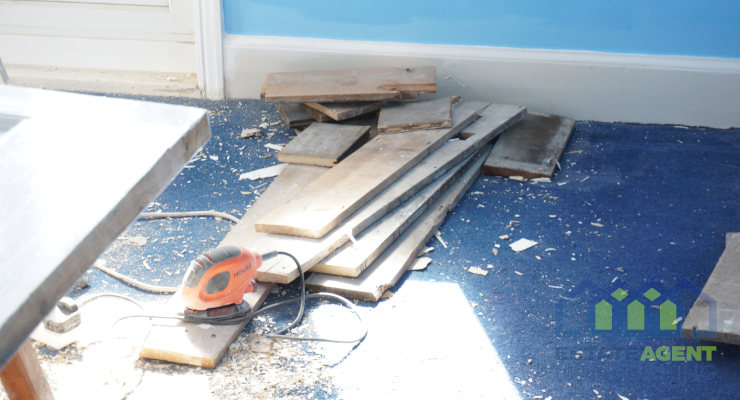How First-Time House Flippers Can Set a Realistic Timeline
How many times you watched one of the wildly popular house flipping shows on television and thought to yourself – “now that’s something I could do, that looks pretty quick and easy”. While these shows are great for getting the word out about house flipping and providing viewers with design and décor inspiration, what they don’t show is the true time and effort that goes into the flip. Typically, these shows are made to fit into a 30-60-minute time slot, but in reality, they could have spanned weeks, and even months, making it the exact opposite of a quick and easy job.
So, how long does it actually take to flip a house? How can first-time flippers go about setting a realistic timeline and put forth expectations that don’t lead to disappointment? Here are some tips and techniques specifically meant for first-timers going into their first flip that will help them to schedule the timeline.
Factor in the Time to Purchase the Home
First, you need to take into account the time spent before the work even starts. Just because you want to get out there and flip a house, doesn’t mean you’ve got a house right there ready to go. You need to search around, do your market research, investigate different neighborhoods, and then go through the purchasing process. In general, expert flippers tend to budget about one month’s worth of time to find, purchase, and close the deal on the house. If you want to know what the different steps are in more detail, you might want to read this article – “How Long Does it Take to Flip a House?”
The Renovation Timeline
Here is the largest amount of time that you’ll need to factor into the equation. On average, most people find three to four months is adequate for doing renovations and repairs. With that said, there are plenty of factors that can speed up or slow down the timeline. These include such things as:
- A shortage of cash necessary to fund the project
- Weather can slow down renovations
- A shortage of the materials needed
- Finding problems that you didn’t initially bank on
- Repairs and renovations that are more involved and time-consuming than you originally planned for
- Not having as much available time to work on the project
- A construction crew that is falling behind or not showing up for work
- Problems getting work permits
- Projects that have been done incorrectly and now need to be re-done
Obviously, the goal is to avoid all these issues, but sometimes it’s just not possible. It can also feel like a bit of a domino effect where one thing goes wrong, which then leads to all kinds of other problems. This tends to be more common with older homes where you can run into issues with the foundation, pipes, wiring, and more.
This is exactly why a home inspection before you purchase a home is a good idea. It can identify all the problem areas that you will need to factor into the budget and timeline.
Stay on Track with a Schedule
It’s never a good idea to just have a renovation timeline floating around in your head, rather it’s best to get it down on paper or in some sort of tracking spreadsheet you have created. You can then keep track of such things like the order in which projects need to be completed, a timeline for each project, materials on order vs those that have arrived, the status of each project, what is coming up next, and even the budget.
It’s all about keeping the project organized and on track so that you don’t fall behind schedule.
Now It’s Time to Sell the Home
Once all the work has been done and you are ready to list your flip, there will be more time that will pass by. In a robust and healthy housing market, it can take between one to two months to sell a home. Again, a number of factors will come into play that will help to determine just how fast you can unload the home. This includes the price you list it at, the quality and style of the renovations you’ve done, how popular that particular neighborhood is, and the housing and financial markets in general.
Another thing to consider is the time of year that you will be selling the house. Spring and summer tend to be the most popular time for people to purchase homes, so ideally you want to aim to have the house listed during these seasons.
Heading Into the Process with Realistic Expectations
By taking the time to really plan out your timeline in a realistic manner you’ll have a much clearer picture of how long the process will take from start to finish, which includes finding and ultimately selling the house.









